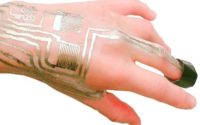How In Silico Clinical Trials Market Growth Will Impact the Biomedical Industry?
The clinical research environment is undergoing a massive shift as pharmaceutical companies are exploring the possibilities offered by in silico trials for their product development initiatives. In silico clinical trials involve testing drugs on “virtual patients” utilizing computational modelling and simulation technologies to detect failures in the early stages of drug development and predict trial outcomes. While in silico clinical trials have been around for a while, the COVID-19-related restrictions helped make the approach more mainstream across pharma companies as human participation became limited due to strict lockdown measures and fear of infection. According to World Health Organization, non-communicable diseases account for 41 million deaths each year, while communicable diseases take over 17 million people annually across the globe. Hence, the biomedical industry needs to gear up to develop pharmaceuticals and medical products, which would create a greater demand for in silico clinical trials to improve the safety and efficacy of research studies.
Technology to be Gamechanger
Novel technologies and innovations in healthcare are advancing the development of new treatments and interventions. By constructing computer systems that emulate human-solving problems and learning behavioral patterns, one can receive sophisticated modelling simulation methods for making better analyses and predictions. Many companies like Atomwise, Standigm, and DeepMatter are already utilizing artificial intelligence in in silico trials for data mining, target identification, preclinical development, and lead discovery. With AI and ML, one can anticipate accurate predictive models to devise the most effective countermeasures.
Making Precision Medicines a Reality
The “one-size-fits-all” approach to medicine based on broad population averages is becoming a thing of the past. Understanding genetics and genomics and how they drive health, diseases, and drug responses have led to the advent of precision medicine. In silico clinical trials offer biopharma companies opportunities to use diverse data from electronic health records, real-world sources, and other massive amounts of data to understand drug responses better and discover new drug indications. Casual machine learning, a powerful type of AI, can help scientists predict the subpopulation of patients responding positively to medication.
More R&D initiatives for in silico clinical trials
Rising demands for biologics and personalized medicine across the world have led to huge investments from pharmaceutical companies to focus on the development of drugs by augmenting the number of clinical trials. Currently, the oncology segment accounts for the highest share in the global in silico clinical trial market due to more research and development initiatives to find effective therapies to cure cancer. However, the testing approach would expand to other therapeutic areas such as infectious diseases, hematology, cardiology, dermatology, neurology, etc., with greater financial support and flexibility in regulations regarding the in silico clinical trials. Recently, Hong-Kong based company Insilico Medicine raised USD60 million in funding for using artificial intelligence for new drug discoveries.
Moreover, regulatory agencies like the Food & Drug Administration are promoting the use of in silico clinical trials to improve the regulatory evaluations, which could further contribute to its market growth. According to the TechSci research report on “In Silico Clinical Trials Market – Global Industry Size, Share, Trends, Competition, Opportunity, and Forecast, 2017-2027 Segmented By Industry (Medical Devices v/s Pharmaceuticals), By Therapeutic Area (Oncology, Neurology, Cardiology, Infectious Diseases, Orthopedic, Dermatology, Others), By Region”, the global in silico clinical trials market is expected to grow at a CAGR of 12.28% during the forecast period. The market growth can be attributed to the rising prevalence of communicable and non-communicable diseases such as cancer, diabetes, cardiovascular diseases, etc., and technological advances in artificial intelligence and machine learning.
Contact
Mr. Ken Mathews
708 Third Avenue,
Manhattan, NY,
New York – 10017
Tel: +1-646-360-1656
Email: [email protected]
Website: https://www.techsciresearch.com



